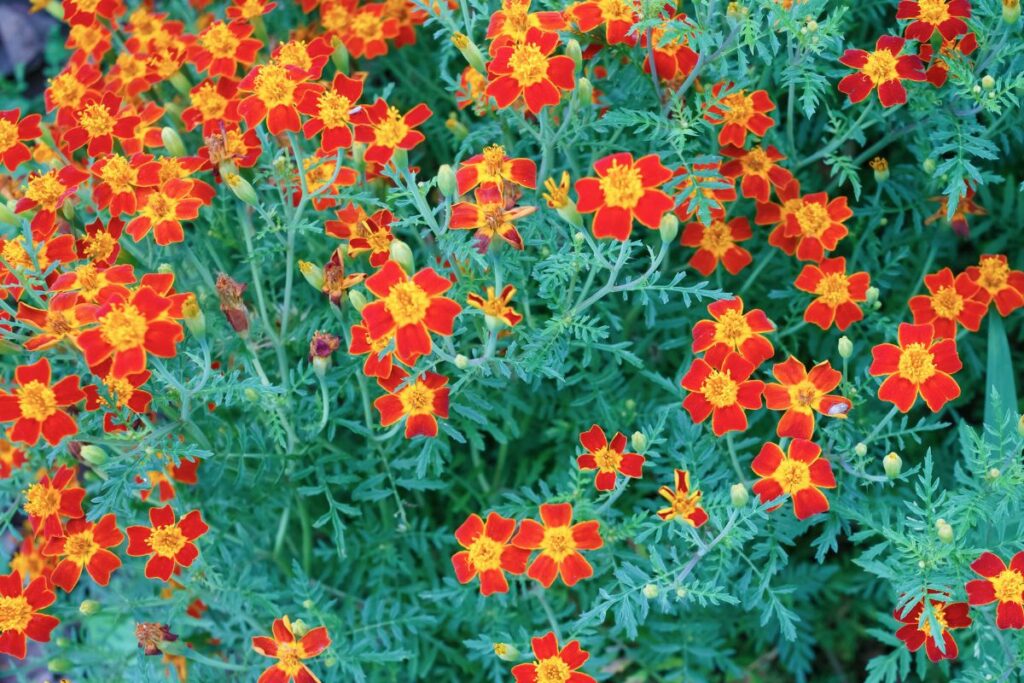Marigolds, with their vividly colored blooms, bring more than just beauty to your garden; they beckon a host of pollinators and serve as excellent companion plants. While these blossoms are a visual delight and bolster garden health, it’s important to select the right varieties for your space. Some marigolds carry natural compounds that, rather than benefiting, can actually harm by causing skin reactions upon contact.
Understanding which marigold types to embrace and which to avoid is crucial for both garden harmony and personal safety. Notably, three specific marigold varieties have been flagged by research for their adverse effects when their oil extracts come into contact with skin. Selecting the appropriate marigolds ensures a garden that’s not only aesthetically pleasing but also a safe, flourishing ecosystem for you to enjoy.
Plants to Steer Clear Of
When indulging in gardening, it’s vital to be aware of certain flora that could cause adverse skin reactions. Awareness and caution can help you avoid unnecessary discomfort.
Marigolds to reconsider:
- Avoid Signet Marigolds (Tagetes tenuifolia), despite their lemony charm, they have the potential to irritate.
- African Marigolds (Tagetes erecta), found widespread, can be deceptive with their vibrant colors leading to skin issues.
- Known as Mexican Marigold in the U.S. and Sweet Mace in the U.K., Tagetes lucida should be approached with care.
- The so-called French Marigolds (Tagetes patula) are not as friendly as their name suggests.
One to Watch:
- The marigold Tagetes minuta, often mixed with others, stands out as a significant irritant. Always verify its scientific name before bringing it into your garden.
Keep in mind that plant labels may not always be distinct, so a double-check on the scientific nomenclature is a wise step when selecting plants.
Gardener’s Advice on Marigold Care
When tending to marigolds, safety should be a priority. Equip yourself with protective gear including:
- Gloves
- Goggles
- Sturdy footwear
- Long-sleeve tops
- Trousers
These precautions help prevent skin irritation, which can lead to uncomfortable symptoms such as itchy reddish rashes, blisters, or hives.
Although marigolds are generally safe for pets, cautious oversight is necessary if your furry friends have sensitive skin to avoid any allergic reactions.
Be aware of the common name confusion with marigolds in the U.S. Many plants are referred to as “marigold” but aren’t related to the true Tagetes species. For example:
- Yellow Marsh Marigold – Mildly toxic to skin, handle with care.
- Desert Marigold (Baileya multiradiata) – Toxic to certain livestock but okay for human contact.
- Pot Marigolds (Calendula officinalis) – Though similar in appearance, they’re skin-friendly and can be handled without concern.
These guidelines ensure that your gardening experience is both secure and pleasant, without compromising your health or the well-being of your pets.



